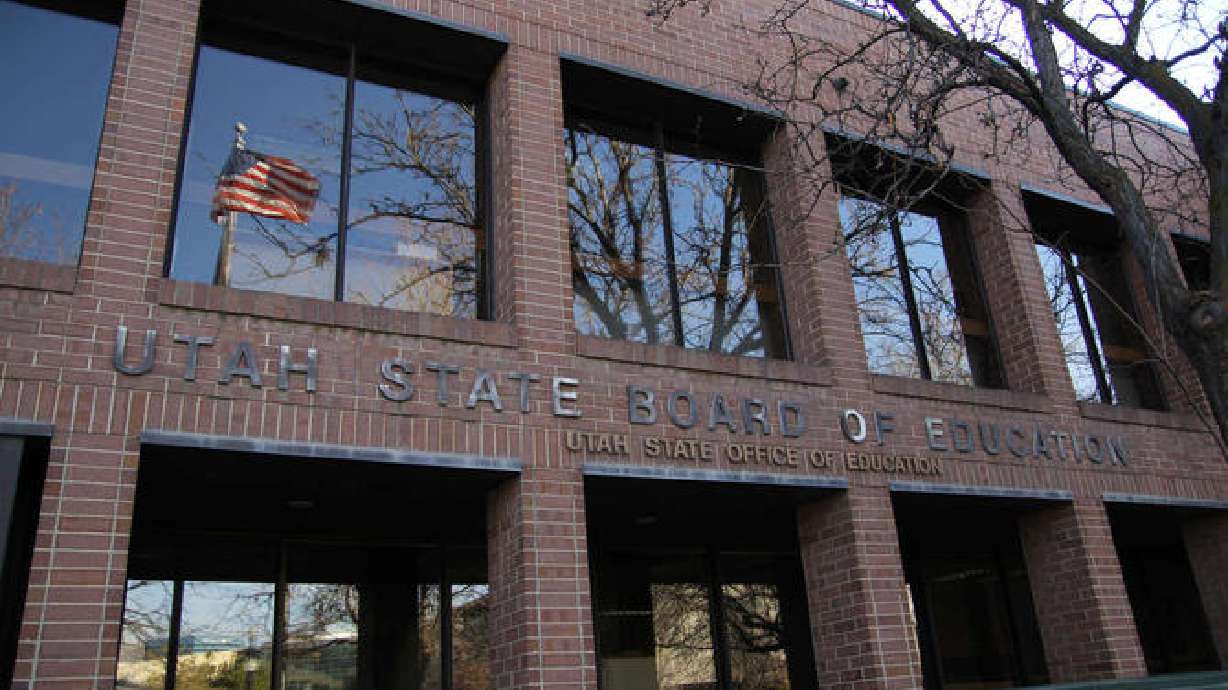Estimated read time: 4-5 minutes
This archived news story is available only for your personal, non-commercial use. Information in the story may be outdated or superseded by additional information. Reading or replaying the story in its archived form does not constitute a republication of the story.
SALT LAKE CITY — The Utah State Board of Education voted Thursday to support restoring public school students' and teachers' access to an educational database blocked by Utah Education and Telehealth Network administrators after parental complaints about inappropriate content.
Late last month, a parent who accessed the EBSCO database from her home found inappropriate materials and raised concerns with the Utah Education and Telehealth Network. The access was not gained within schools, which have filtering software intended to prevent students accessing inappropriate content, officials said.
The network administrators' decision to block access was later supported by the Utah Education and Telehealth Network board on a 6-1 vote until further steps could be taken to ensure student safety. Access to the database will remain blocked until further action of the board, which meets again on Oct. 19.
The State School Board has no oversight authority over the education network. It was created by and funded by the Utah Legislature, initially as an educational television entity but evolving into an educational network over time. The Utah State Board of Education has one position on the network's 13-member board.
Earlier in the day, Peter Bromberg, executive director of the Salt Lake City Library and advocacy chairman for the Utah Library Association, urged the board to support restoring access to the database.
"In blocking access to the 275 million articles to over 800,000 students across the state of Utah who rely on these extremely safe, curated and filtered research databases to do their homework every day, UEN has erred, has made a bad choice," Bromberg said.
"The decision ignored the facts and was based on the report of someone searching for 45 minutes on her home computer in an unfiltered environment unlike the heavily filtered environment that this would happen in a school setting. UEN themselves said at their board meeting they were unable to replicate these results," he said.
The decision to censor millions of articles "has a sweeping and negative impact on students and teachers across this state," he said.
The board voted 8-6 to direct its representative on the Utah Education and Telehealth Network board to support restoring access with the caveat that additional measures are in place to block inappropriate material.
But others, such as Diane Fisher — whose own children include two students in a public high school, a home-schooling mom and a certified public schoolteacher — urged the board to stand up for vulnerable children.
"The media's framed it as a social agenda. The truth is, this is a 'protect the children of Utah' issue," Fisher said.
(The decision to censor millions of articles) has a sweeping and negative impact on students and teachers across this state.
–Peter Bromberg, Utah Library Association chairman
Research shows access to pornography and other inappropriate content "has severe health, economic and social consequences. Are we so educationally impoverished we can't find an alternative to this current, untrustworthy site? My plea and challenge to you is to protect the children of Utah, protect the youth of Utah," she said.
Board member Michelle Boulter said parents in Colorado raised concerns about content on EBSCO Information Services last year, so "apparently what we're seeing is EBSCO's cleaned-up version."
EBSCO is among the National Center on Sexual Exploitation's "dirty dozen," list, Boulter said.
Board member Spencer Stokes noted the organization's "dirty dozen" list also includes Amazon, Backpage.com, Comcast, HBO, iBooks, Poster Boys, Roku, Snap, Steam, Twitter and YouTube.
"I'm sorry, but if this is the 'dirty dozen,' I use the 'dirty dozen.' I use like 10 of these, like I used them last week," Stokes said.
EBSCO provides different tiers of access to its products: one for K-12 students, another for higher education and public libraries.
Two board members who are public schoolteachers said they have classroom controls so they are aware of all searches their students conduct on the EBSCO database.
Board member Jennifer Graviet said it makes little sense to restrict access to the database in schools, especially when students using a public library would have access to far more information.
Moreover, "I have never seen an incident (of access to inappropriate materials) in 24 years of teaching," she said.
But Boulter said her son saw pornographic images in a public school classroom when he was 8 years old, which she said was the start of a pornography addiction. With the support of family, he has overcome his addition, she said.
"When we caught him, he was on the verge of meeting up with adults he had been talking with. It is a real thing," she said.










